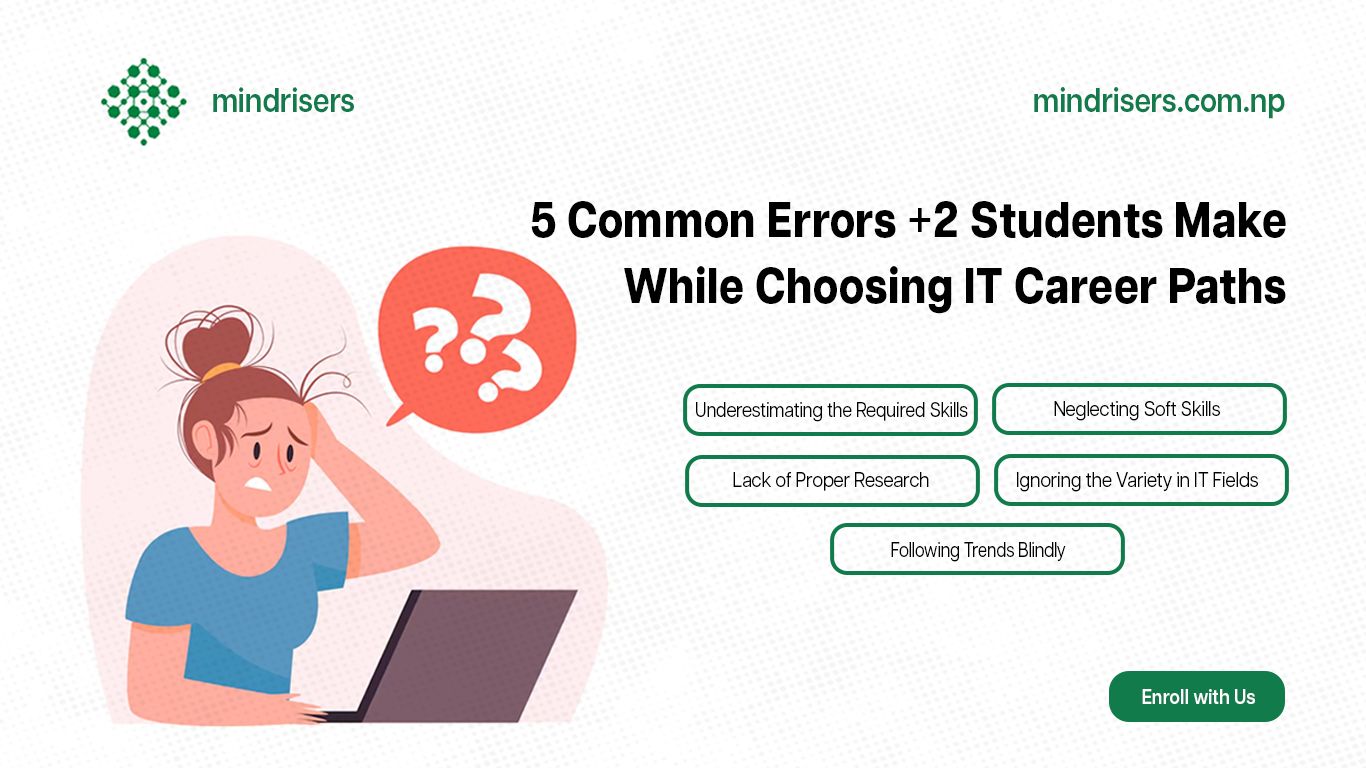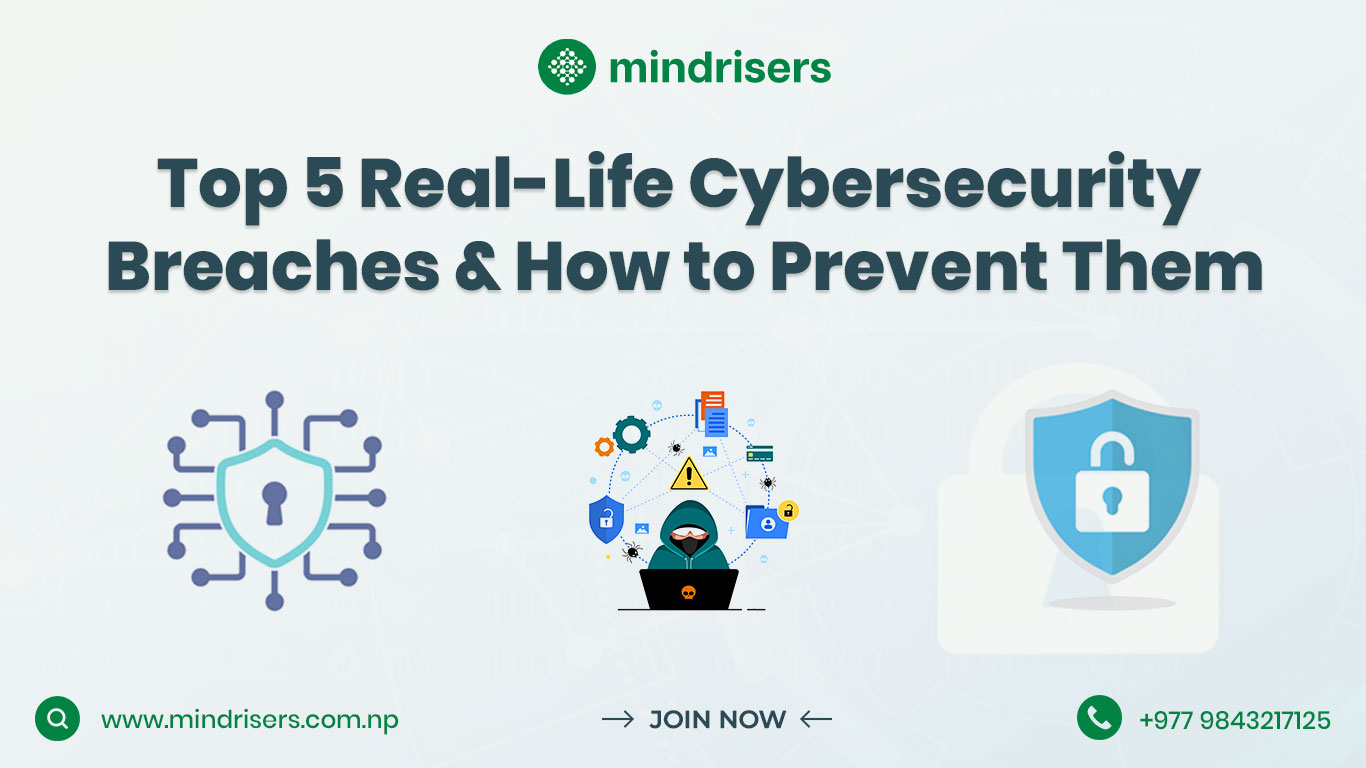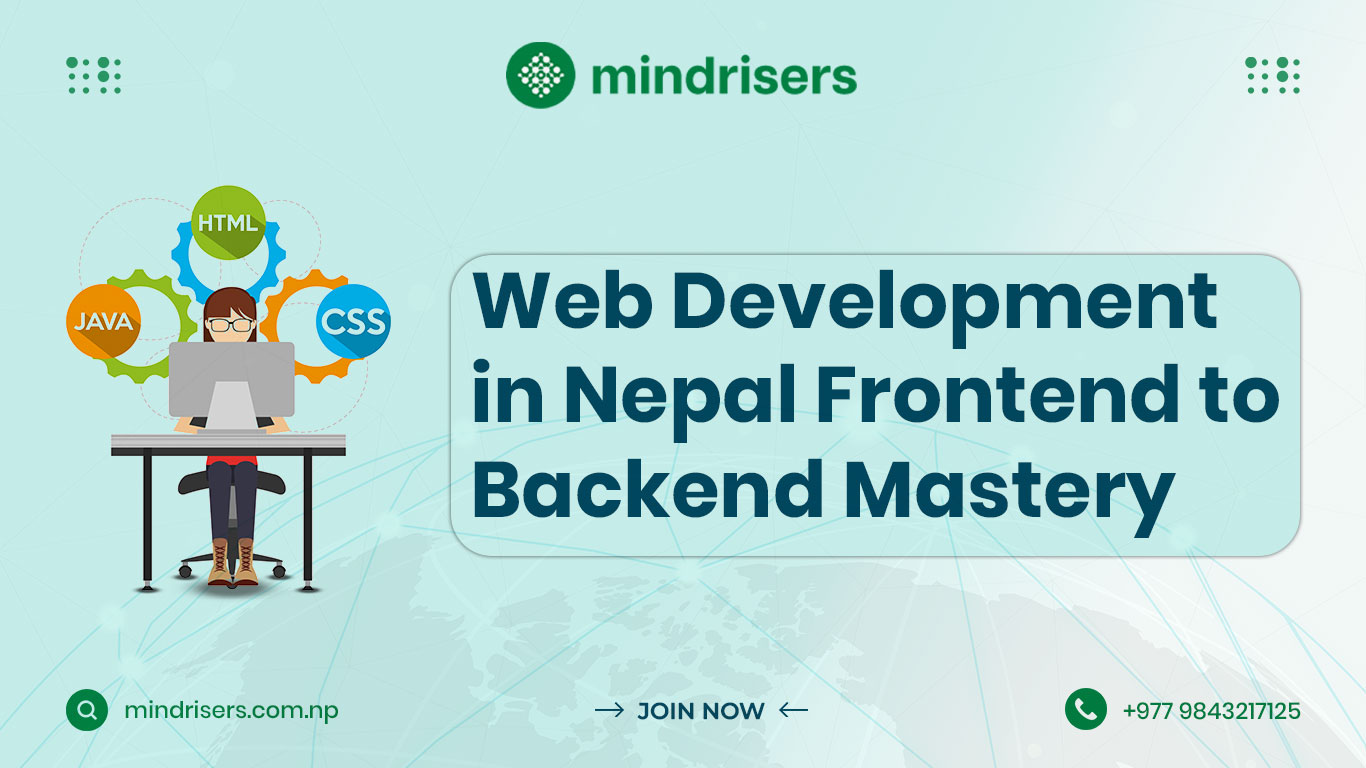
Alisha Karki - Author
2025-05-21
Hey there! Finishing 12th grade and wondering about the best IT courses after 12th? I get it, it's a big decision that can shape your entire future. Tech is more alive than ever, but I have observed that too many students lose their way when they choose their IT direction.
Now, let’s discuss the common traps students get into, and how you can avoid them to ensure that you get the right tech career.
Why Consider IT Courses After 12th?
To be honest I wish more teachers knew about these hidden tips. I often notice that students don’t always get the best advice or even any advice at all when it comes to their IT degree choices. If you love coding, cybersecurity, analyzing data, or creating fantastic user experiences, there’s an IT career for you.
Even worse, winding up in the wrong technical track may leave you unhappy, unmotivated, or, in the worst case, in a job that doesn’t ignite your passion.So let's talk about how to avoid the pitfalls!
First Error: Putting Your Friends Before Yourself
We've all been there, your best friend is psyched about cybersecurity, so suddenly you're thinking, "Maybe that's my thing too?" One of the biggest mistakes I see when students look at top IT courses for +2 students is choosing based on what others are doing rather than what genuinely interests them.
Here's the truth:
spending years studying something you don't actually enjoy is a special kind of torture. I've talked to so many IT professionals who dragged themselves through courses they hated just because someone else thought it was a good idea.
How to avoid this trap:
Take a minute to think about what YOU find interesting. What tech topics make you curious? What problems do you enjoy solving? Trust your gut if data visualization makes you yawn but building apps gets you excited, that's a huge clue about which direction to go!
Second Error: Jumping In Without Looking at What You'll Actually Learn
Picture this: You sign up for what sounds like an awesome IT course after 12th, only to discover three months in that the curriculum is outdated, the projects are boring, and the skills won't actually help you land your dream job. Ouch!
Too many students skim over course details and jump straight to enrollment. They don't dig into what technologies they'll actually learn, how hands-on the training will be, or whether the skills align with what employers actually want.
How to avoid this trap:
Be a detective! Get the full course syllabus and ask yourself: "Are these the skills companies are actually hiring for?" Talk to people who've actually completed the program and were they prepared for real jobs? Did they learn what was promised?
Third Error: Not Checking if Your Degree Will Actually Count
There is a danger that you will complete your courses only to find that your degree does not have the credibility that employers and universities are seeking. Talk about a nightmare! Students who failed to verify their program’s accreditation have experienced this problem themselves.
With so many institutes offering IT courses after 12th, some are excellent while others... well, not so much. Studying at an unaccredited or poorly regarded institution can seriously limit your options down the road.
How to avoid this trap:
Always check if your program is approved by bodies like UGC or AICTE. Google the institution's reputation and see what former students say about their experience. Are graduates getting good jobs? Are employers impressed by the school's name on resumes?
Fourth Error: Making It All About the Money
When exploring career options in IT after 12th, it's easy to fall into one of two money traps: either going for the cheapest option possible or assuming the most expensive program must be the best.
The bargain-basement approach might save you money upfront but cost you in terms of outdated curriculum, poor teaching, or weak industry connections. On the flip side, that premium-priced program might have more flash than substance.
How to avoid this trap:
Think like an investor! Look at the complete package – teaching quality, hands-on projects, internship opportunities, and job placement support. Sometimes paying a bit more is worth it, and sometimes a more affordable program offers incredible value.
Fifth Error: Specializing Too Soon
AI, blockchain, and data science sound super exciting! But here's something many +2 students don't realize: diving straight into highly specialized fields without building strong foundations is like trying to run before you can walk.
Without core computer science knowledge, you might find yourself struggling to adapt when technology inevitably changes. The most successful tech professionals have solid fundamentals that let them pivot as the industry evolves.
How to avoid this trap:
Start broad before going deep. Look for programs that give you a strong foundation in computer science principles before branching into specialties. The fundamentals you learn will serve you throughout your entire career.
Sixth Error: Ignoring the Hands-On Experience Factor
Theory is important, but let's be honest – employers want to see what you can actually DO. One of the biggest mistakes when choosing the best IT courses after 12th is overlooking how much practical, hands-on experience you'll get.
Too many students graduate with heads full of concepts but hands that have barely touched the tools professionals use every day. This makes the transition to workplace reality jarring and difficult.
How to avoid this trap:
Look for programs heavy on projects, internships, and real-world problem-solving. Ask questions like: "Will I build a portfolio during this course? Will I work with industry-standard tools? Are there hackathons or coding competitions?"
Seventh Error: Focusing Only on Technical Skills
Here's something they don't tell you enough: being a coding wizard isn't enough to succeed in tech. Students who are studying IT after class 12 often focus on technical competencies and rarely spend money on developing their soft skills.
The reality? Being great in such things as communication, teamwork, problem-solving, and adaptability is the way to career advancement, not just superior technical skills.
How to avoid this trap:
Select programs that provide opportunities to develop presentation skills, team work, and personal professional competency. These elements might seem less important now, but they'll be crucial for your long-term success.
Finding Your Perfect IT Path: Some Friendly Advice
Choosing your IT path doesn't have to be overwhelming. Start by getting honest with yourself about what you enjoy and where your strengths lie. Research thoroughly, talk to people in the field, and think about where you want to be in five years.
Remember, this is not a decision for your academic years, only it will determine the type of job you will love in the future. Don’t make a decision in a hurry, ask for advice if necessary, and listen to your gut feeling.
FAQ
What IT courses are currently growing the most after finishing 12th grade?
There has been a boom in the interest in such careers as Computer Science Engineering, Data Science, AI and Machine Learning, Full Stack Development, Cybersecurity, and Cloud Computing, with great employment opportunities.
Is a background in advanced mathematics a surefire way to succeed in IT?
Not necessarily! Although data science and AI courses focus on maths, working as a web developer or UX designer does not require rigorous maths. IT professionals are valued for their special skills.
What if I choose wrong and want to switch tracks later?
One of the beauties of the IT industry is its flexibility. Changing your career path later isn’t uncommon or difficult. Many tech professionals switch between fields as their interests change.
What if I choose wrong and want to switch tracks later?
You can absolutely change directions if your initial path doesn’t fit. The tech industry offers many entry points, and you can always develop new skills to move toward a different focus. Many IT professionals changed careers successfully later in life.
Recent Post
View All
Top 5 Real-Life Cybersecurity Breaches & How to Prevent Them
2025-07-07.351 Views
Web Development in Nepal | Frontend to Backend Mastery
2025-07-06.578 Views
Digital Transformation Success Stories: Code to Cloud Innovations
2025-06-24.681 Views
Dark Web: What IT Students Should Know in 2025
2025-06-24.582 Views
Never miss an Opportunity !
Want to learn TOP 2025 IT Skills ?
We open IT skill classes Monthly in Design, Development, Deployment, Data etc.
Have something to Ask ?
get admission enquiry